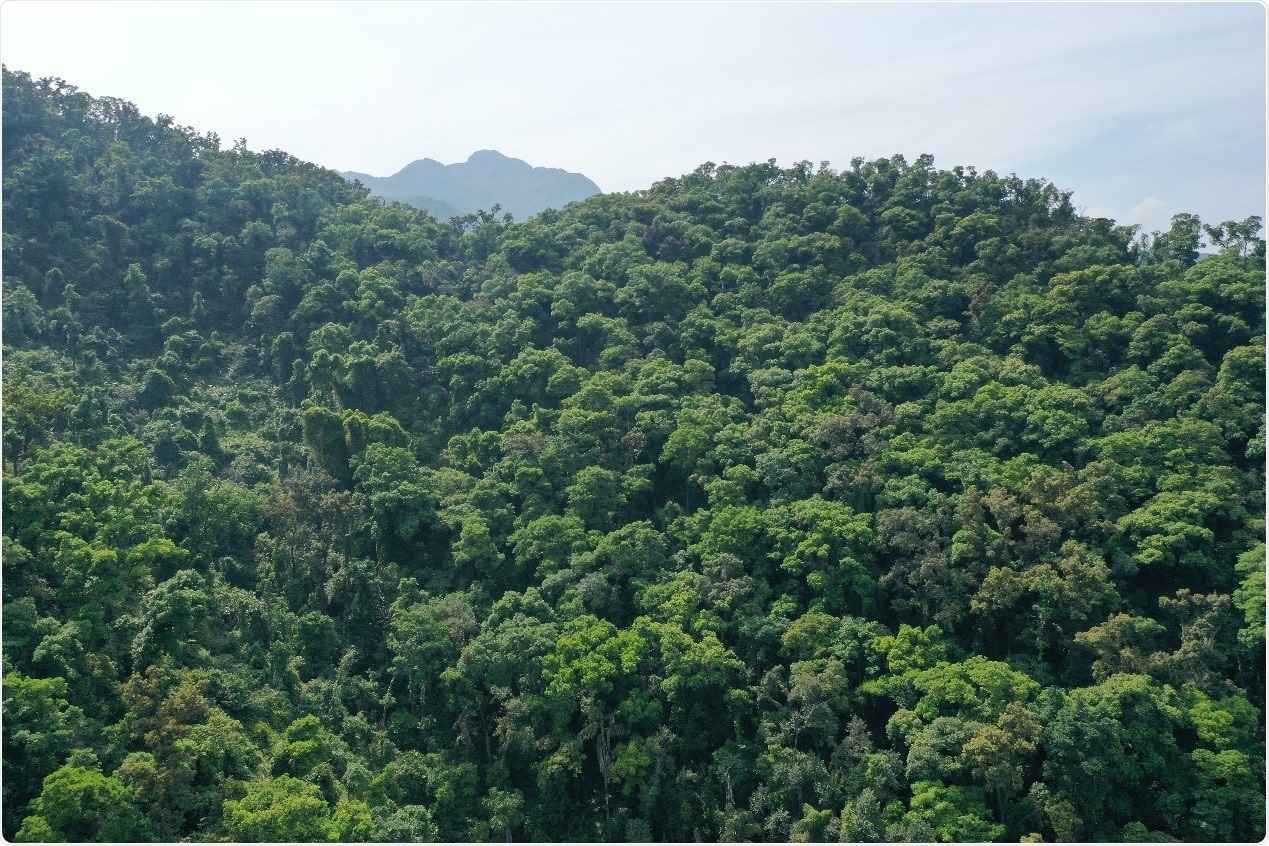According to a new study, tropical forests exhibit the ability to capture carbon dioxide (CO2) into soils and thus decrease the amount of CO2 that is emitted. But how precisely do soils in tropical forests trap atmospheric CO2?

An N-rich primary tropical forest at the Dinghushan Biosphere Reserve in southern China, where the first long-term simulated N deposition research site was established (in 2002) in China. Image Credit: SCBG.
The new study was performed by Dr. Xiankai Lu and his collaborators from the South China Botanical Garden (SCBG) of the Chinese Academy of Sciences (CAS).
Existing knowledge related to forest soil carbon sequestration focuses mainly on boreal and temperate forests in which a majority of the ecosystems are nitrogen-limited. Thus, an increase in the supply of nitrogen can improve the net primary productivity (NPP) and the resultant soil carbon sequestration.
Several researchers have conventionally considered that nitrogen-rich tropical forests could not possibly increase belowground soil carbon storage when there is a higher supply of nitrogen because of a lack of NPP stimulation. But this assumption has not been fully confirmed in field conditions, and researchers have always ignored belowground ecosystems.
Dr. Lu and his team started over 10 years of continuous nitrogen addition experiments in a nitrogen-rich tropical forest ecosystem. They quantitatively showed that excessive deposition of nitrogen considerably increased soil carbon storage by 7% to 21%.
The researchers note that the efficiency of soil carbon sequestration was predicted to be 9 kg of carbon per unit of added nitrogen. This value is comparable to that of temperate forest ecosystems. A fascinating fact is that the retention of soil nitrogen was considerably and positively correlated with carbon sequestration.
The team combined the field experiments with other universal data and concluded that nitrogen deposition triggers soil carbon sequestration, which is widespread across nitrogen-rich and nitrogen-limited ecosystems. But they added that the fundamental mechanisms of both these ecosystems are different.
In the case of nitrogen-limited forest ecosystems, the deposition of nitrogen triggers soil carbon sequestration of organic carbon by elevating the levels aboveground plant litter inputs to forest soils and decreasing CO2 emissions from soils.
By contrast, in the case of nitrogen-rich forest ecosystems, the subsequent reductions in CO2 emissions and dissolved organic carbon that leaches from soils are the two prime drivers of carbon sequestration.
The team demonstrated that the interaction of organic matter with soil minerals has a dominant role in controlling the stabilization of soil carbon stocks in both ecosystems.
This study for the first time proves that excess nitrogen deposition can promote soil organic carbon accumulation in nitrogen-rich tropical forests. We have highlighted that these mechanisms can be incorporated into state-of-the-art Earth models, improving prediction of terrestrial carbon cycles under global change scenarios.”
Dr Xiankai Lu, Study First Author and Principal Investigator, Nitrogen Biogeochemistry Lab, South China Botanical Garden, Chinese Academy of Sciences
“Our findings, however, do not imply that we encourage loosening limits on nitrogen emissions into the atmosphere, in view of their adverse impacts on the environment and human health,” added Lu.
Source:
Journal reference:
Lu, X., et al. (2021) Nitrogen deposition accelerates soil carbon sequestration in tropical forests. Proceedings of the National Academy of Sciences. doi.org/10.1073/pnas.2020790118.